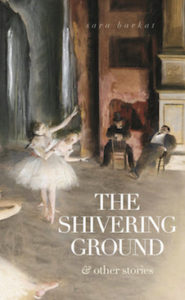< Return to Kahlil Gibran Poems
My Friend
My friend, I am not what I seem. Seeming is but a garment I wear—a care-woven garment that protects me from thy questionings and thee from my negligence.
The “I” in me, my friend, dwells in the house of silence, and therein it shall remain for ever more, unperceived, unapproachable.
I would not have thee believe in what I say nor trust in what I do—for my words are naught but thy own thoughts in sound and my deeds thy own hopes in action.
When thou sayest, “The wind bloweth eastward,” I say, “Aye it doth blow eastward”; for I would not have thee know that my mind doth not dwell upon the wind but upon the sea.
Thou canst not understand my seafaring thoughts, nor would I have thee understand. I would be at sea alone.
When it is day with thee, my friend, it is night with me; yet even then I speak of the noontide that dances upon the hills and of the purple shadow that steals its way across the valley; for thou canst not hear the songs of my darkness nor see my wings beating against the stars—and I fain would not have thee hear or see. I would be with night alone.
When thou ascendest to thy Heaven I descend to my Hell—even then thou callest to me across the unbridgeable gulf, “My companion, my comrade,” and I call back to thee, “My comrade, my companion”—for I would not have thee see my Hell. The flame would burn thy eyesight and the smoke would crowd thy nostrils. And I love my Hell too well to have thee visit it. I would be in Hell alone.
Thou lovest Truth and Beauty and Righteousness; and I for thy sake say it is well and seemly to love these things. But in my heart I laughed at thy love. Yet I would not have thee see my laughter. I would laugh alone.
My friend, thou art good and cautious and wise; nay, thou art perfect—and I, too, speak with thee wisely and cautiously. And yet I am mad. But I mask my madness. I would be mad alone.
My friend, thou art not my friend, but how shall I make thee understand? My path is not thy path, yet together we walk, hand in hand.
—Kahlil Gibran
About Kahlil Gibran
Khalil Gibran (جبران خليل جبران) was a writer, visual artist, and poet with a prolific collection of work. He was born in 1883 in a village in the Mount Lebanon Mutasarrifate and in 1893 moved with his family to the United States where he enrolled in school in Boston, then went back home when he was fifteen to enroll in the Collège de la Sagesse. In 1902 he came back to Boston, and two years later his artwork was displayed for the first time. In 1905 he published his first book, and after that studied art in Paris for three years. Gibran wrote books in both Arabic and English, including poems, plays, fables, short stories, and political essays.
His cousin, Kahlil G. Gibran, a sculptor, described his work in this way. “Ignoring much of the traditional vocabulary and form of classical Arabic, he began to develop a style which reflected the ordinary language he had heard as a child in Besharri and to which he was still exposed in the South End [of Boston]. This use of the colloquial was more a product of his isolation than of a specific intent, but it appealed to thousands of Arab immigrants.” (Robin Waterfield, 1998) He was inspired by the King James Bible, the works of William Blake, whose drawings were in Gibran’s opinion “so far the profoundest things done in English.” (Joseph Ghougassian, 1973) Other inspirations included Francis Marrash (فرنسيس بن فتح الله بن نصر الله مرّاش), Walt Whitman, and Friedrich Nietzsche.

“Self Portrait and Muse” by Khalil Gibran
With visual art Gibran worked in oils, pencil, ink, watercolor, and gouache, and created more than seven hundred pieces of visual art. His work is featured in a number of museums, and his work The Prophet has been translated into more than 100 languages and has never been out of print, becoming popular in the American counterculture and New Age movement. The book was admired by Elvis Presley, John Lennon, Johnny Cash, David Bowie, Gilad Hochman (גילעד הוכמן) and Dana Al Fardan. Gibran has museums, memorials, schools, a garden, and a crater on Mercury named after him.
I hope you enjoyed My Friend by Kahlil Gibran! If you liked My Friend by Kahlil Gibran, you might enjoy more poems by him below.
< Return to Khalil Gibran Poems
“Stunning…from start to finish. Barkat is a fierce new voice.”

